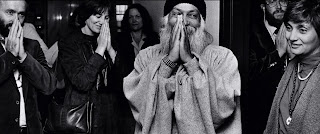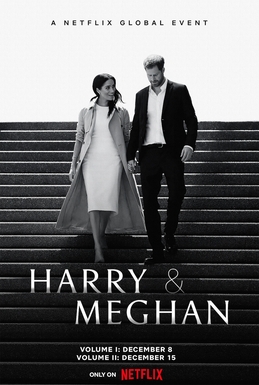JAMES CAGNEY: TOP OF THE WORLD
This review is part of the Summer Under the Stars Blogathon. Today's star is James Cagney.
There are two ways to think about James Cagney. Some see him as the ultimate gangster, a small brawler who could take down anyone who got in his way. Some see him as a cheerful song-and-dance man, making dancing down a staircase look effortless. Cagney was able to play both with equal ability. Perhaps that is why he is still remembered long after his 1986 death. James Cagney: Top of the World is a good introduction to this iconic figure, respectful and with some surprising revelations along the way.
Top of the World uses an archival interview from Cagney himself to fill in bits of information presented by host Michael J. Fox. Fox speculates as to how he got to be our guide through Cagney's life and career. He notes in Top of the World that when he was asked what the difference between himself and other young actors was, Fox replied, "They all want to be James Dean. I want to be James Cagney". Fox wasn't trying to be flip or glib. He was sincere in his aspirations to be an all-around actor. Perhaps, and this is just my speculation, the fact that Cagney was 5'6" brought a sense of comradery with the 5'5" Fox.
Top of the World starts us out with Cagney's early years in the tough streets of Lower East Side New York City, with his tough mother ruling over the tough brood of Cagney children. Despite this, young Jimmy had a love for the country and rural pursuits. He even applied to agricultural college but did not complete a semester. His family needed help. Cagney then turned to the stage, making his debut in drag as part of the chorus line. He also met his wife Frances "Billie" Vernon, to whom he would be married for 64 years.
Cagney was always studying his craft, learning to improve his acting and dancing. Finally, the years of being a hoofer and on-stage tough guy paid off with the Broadway production, Penny Arcade. Cagney was singled out for praise, and none other than Al Jolson bought the film rights and brought the play and Cagney to Warner Brothers. Retitled Sinner's Holiday, Warner Brothers soon found a solid but at times difficult contract player. His breakout role in The Public Enemy made him a star.
It also typecast him as a tough guy, which frustrated him. More frustrating were the dangerous conditions that he and his fellow actors worked under. During filming for The Public Enemy, real bullets were used, which could have killed the actors. He also disliked how he was shown as treating women. However, his Public Enemy costar Mae Clarke stated that everything he did was choreographed. The fighting and infamous grapefruit slap was choreographed. So was the dancing, as Cagney finally was allowed to do a little on-screen soft shoe in Footlight Parade, showcasing a different side to Cagney.
Cagney was not one to back down from a fight. He helped form the Screen Actors Guild, looking out for his other players. However, his lifelong friend and costar Pat O'Brien noted that Cagney was "the far away fellow", who preferred being a gentleman farmer than hitting the Hollywood scene. In real life, James Cagney was the antithesis of his tough guy persona.
But was he a Communist? His political activities brought him to the attention of the House Un-American Activities Committee before it grew into the post-war fright fest it became. While Cagney was completely cleared of any subversive activities, the experience was so strong that he and his brother decided that it would be in their best interest to make a passionately patriotic film. That film became more important when Yankee Doodle Dandy began filming on December 8, 1941.
From there, Top of the World covers Cagney's slow fade out from film by his own choice. Among the twilight triumphs was White Heat, where the documentary's title comes from. After 31 years of acting, making big budget and small independent films, Cagney decided that it was time to close out his career. Retiring to his farm, he would be lured back into the spotlight a few more times, with the American Film Institute salute being the highlight.
Top of the World, as I said, is a good primer for the life and career of this most extraordinary figure. He was an interesting contradiction; the tough guy who had a passion for rural pursuits. On screen, Cagney was a smooth-talking, at times brutal man with women. In real life, he was gentle and devoted to his Billie, the love of his life. People will learn that, long before method acting was in vogue, Cagney drew from memories of visiting an insane asylum for his White Heat character's breakdown when learning of the mother's death.
Cagney earned the nickname "The Professional Againster" from Jack Warner for his pugnacious manner when dealing with the studio. However, time mellowed him to where he could look back with some amusement. We see this at his AFI acceptance speech, where he corrected the record on an imaginary quote. "I never said, "You dirty rat". What I did say was, "Judy! Judy! Judy!", laughing at another imaginary quote from his contemporary Cary Grant.
At less than an hour, James Cagney: Top of the World is informative and entertaining. James Cagney was more than his image of the hoodlum. He was a man who loved nature, loved his wife, loved his colleagues. He could also look back on his career with great pride.
He certainly made it to the Top of the World.
8/10


































